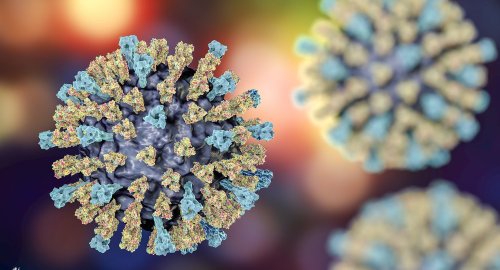
The discovery of a deadly disease in France

- 28-10-2023, 17:22
Baghdad-INA
Health experts in France today, Saturday, identified a disease for the first time, which is believed to kill up to four out of every ten people who become infected with it.
French media reported, “A tick carrying Crimean-Congo hemorrhagic fever (CCHF) was found on the country’s border with Spain. This disease is endemic in Africa, the Middle East, Asia, and the Balkans, and has been discovered sporadically in the southern parts of Western Europe, such as Spain.” .
Experts have long warned that "climate change will push the disease into northern Europe."
“Live ticks collected from livestock in the eastern Pyrénées region were found to harbor the disease.”
“CCHF is one of the nine priority diseases this year due to its potential threat,” WHO officials announced.
The CCHF virus is spread mainly "between humans through tick bites, but people can also become infected through contact with bodily fluids from infected patients."
The disease shares "symptoms similar to Ebola initially, including muscle pain, abdominal pain, sore throat, and vomiting."
It can also "lead to bleeding from the nose or from the capillaries in the eyes and skin."
Other symptoms of the virus, which appear suddenly, include "fever, dizziness, neck pain and stiffness, back pain, headache, sore eyes, and sensitivity to light."
There is no vaccine available, and “treatment focuses on keeping the person alive long enough for their body to fight off the infection.”
Previous CCHF outbreaks have “killed between 10 and 40% of those infected, according to the World Health Organization.”.
It is worth noting that “cases of infection with the CCHF virus were previously discovered in people in France, but all of these cases so far were imported from outside the country.”
“No original case - an infection acquired on French soil - has been detected in humans in France so far,” French government agency Santé Publique France said in announcing the discovery.
PM: Our goal is to stop gas flaring at zero percent by 2028
- politics
- 04:02
South Korean cops raid offices of Jeju Air as crash probe intensifies
- International
- 02:10
Suspected people smugglers to face severe curbs under new UK laws
- International
- 02:00
Iraq vs Saudi Arabia match kicks off, Arabian Gulf Cup 26
- Sport
- 24/12/28
Real Madrid becomes Arnold's new home
- Sport
- 24/12/28
Globe Soccer Awards 2024: all the nominees
- Sport
- 24/12/27
CBI: We have achieved a great achievement in abroad remittance
- Economy
- 25/01/01












